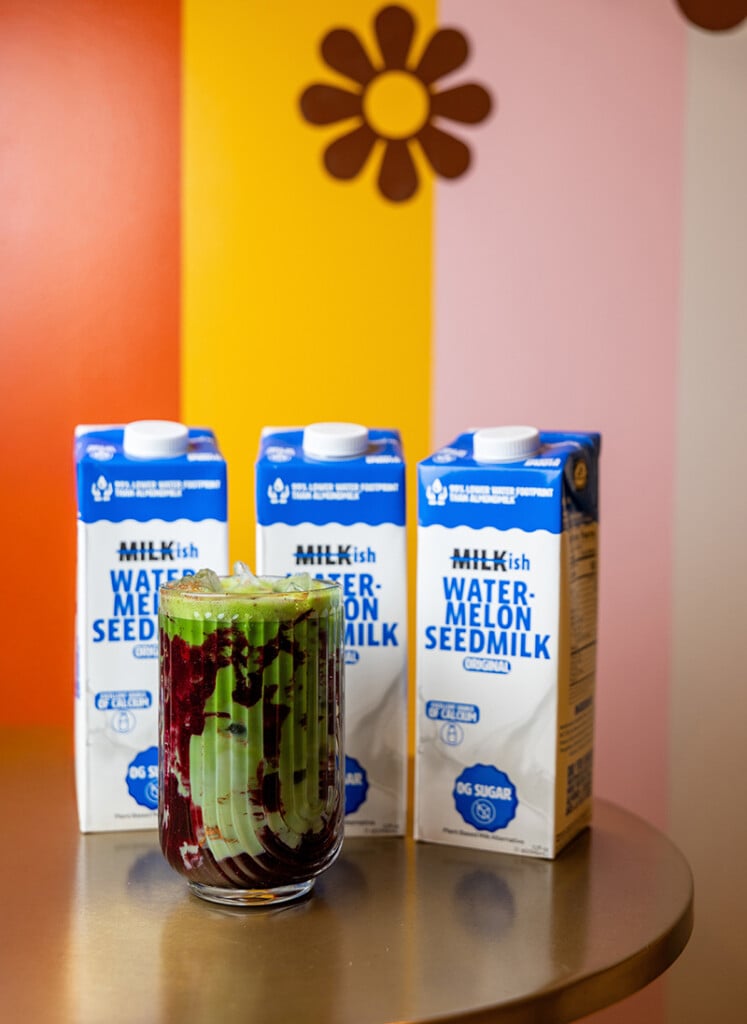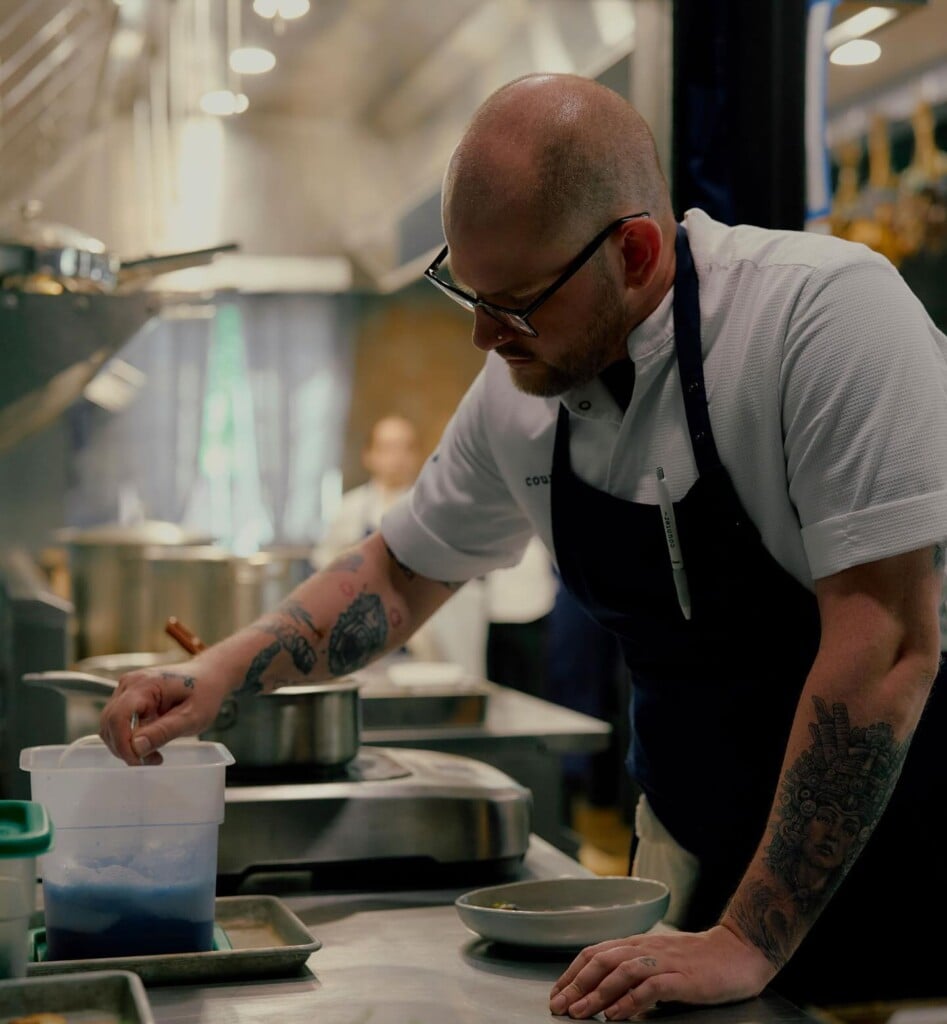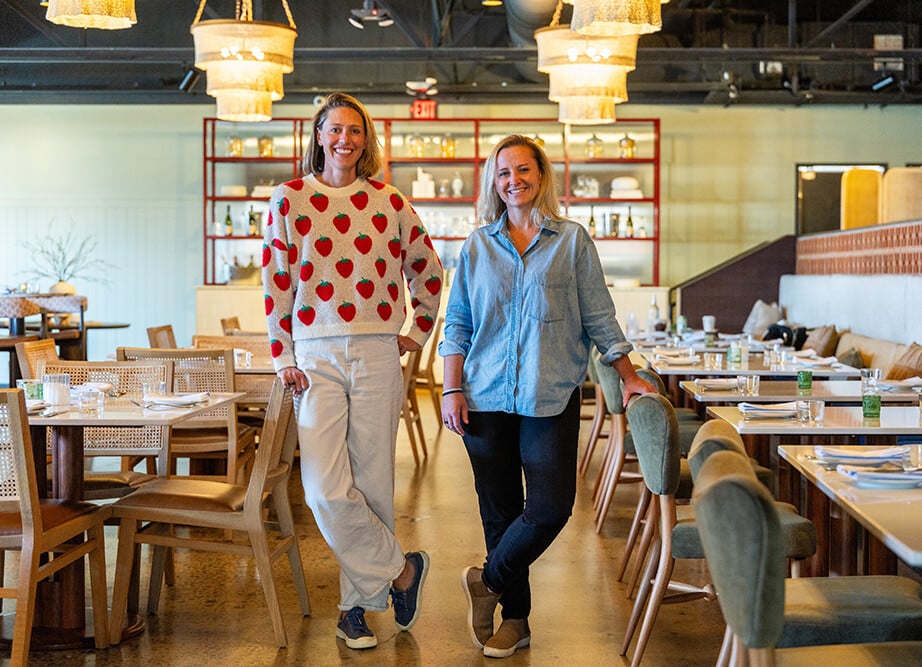Wildroots Coffee Is The First In The Country To Offer MILKish
The local shop found the seed of its new plant-based milk deep beneath the rind

It sounds weird, even for fans of dairy-free alternatives like oat or almond milk.
MILKish is a new plant-based milk made from watermelon seeds, and Wildroots Coffee is the first café in the country to offer it. The locally owned coffee shop with two Charlotte locations rolled out MILKish in April, and owner Jasmine Koch thinks it’ll shake up the plant-based milk category.
“I’d been on the search for a while for something that tastes good, steams well, has a good price, and has a better ingredient list,” she says. “Oat milk has really gross stuff in it, like canola oil, so people have been moving away from it. A lot have ventured back to whole milk. Almond has its own following, but it overpowers the drink. Watermelon seed milk doesn’t have any of the seed oils, so it’s a much cleaner product.”
Koch discovered MILKish a few months ago on TikTok. Guilherme Maia Silva, a young entrepreneur from Brazil, launched the product last September in San Francisco. Koch reached out to him to request samples. “I tried it and placed an order the same day,” she says. “You wouldn’t think it would pair well, but it doesn’t taste anything like watermelons. It goes with everything … black coffee with just a splash, in a vanilla latte, with plain matcha. Every way I’ve tried it, it’s matched up with what I wanted it to be.”
Plant-based milks have gone mainstream in the last 15 years, with coffee houses and smoothie chains increasingly offering dairy-free options. According to Starbucks’ website, substituting non-dairy milk is the second-most requested customization behind adding a shot of espresso.
Taste has played a big role in its popularity, too. Oat milk is slightly sweet with a creamy, thick texture, while almond milk is generally lighter and nuttier with fewer calories per serving. MILKish tastes similar to almond milk but contains no carrageenan—a thickening derivative of seaweed—or artificial flavors or colors. One 8-ounce serving has just 50 calories and zero carbs, and it’s rich in antioxidants.
“When we tested it with customers and staff, the first remarks were that it tastes like ice cream or cotton candy,” Koch says, “but there’s actually zero sugar in it.” While oat milk can overpower the taste of espresso, watermelon seed milk lets the coffee’s flavor take the lead. Its thin consistency is like almond milk’s, but she says the taste is closer to whole or oat milk.
It’s also better for the planet than other plant-based milks, which use huge amounts of water during production. Ingredients like almonds, soy, or oats need water for soaking, grinding, straining, and mixing. Watermelon seeds require 99% less water than almonds to grow.
Kock likes to serve a rotation of new specialty lattes throughout the year (“I get bored really easily making the same drink over and over”), so she was excited to experiment with MILKish. “Any time we create a new drink, (our staff) throws out what they want to see on the menu and we play around to see what works,” she says. “I knew we’d do something with blueberries because it’s that time of year. Randomly, I thought of throwing some maple in it.”
The result was a Blueberry Pancake Latte made with espresso or matcha, house-made blueberry-maple syrup, and a sprinkle of cinnamon. “I didn’t expect it to be as good as it was,” Koch says. “People have been messaging us not to take it off the menu.”
MILKish is no more expensive than most non-dairy milks she carries, but because the company doesn’t have a distributor in Charlotte yet, Koch purchases it by the palette. “We have one coming on Friday that will get us into the fall,” she says. “We have it available to sample in our shop, and that typically translates to an order.”
Wildroots also sells MILKish by the quart in its retail section, and Koch predicts more cafés and grocers across the country will soon do the same. “People will have some hesitation because it’s new,” she says. “Almond milk drinkers have been the easiest to transition. Oat milk drinkers are harder because you’re used to something really thick and creamy. I like to provide unique things to customers, and that variability in alternative milk is so intriguing.”






